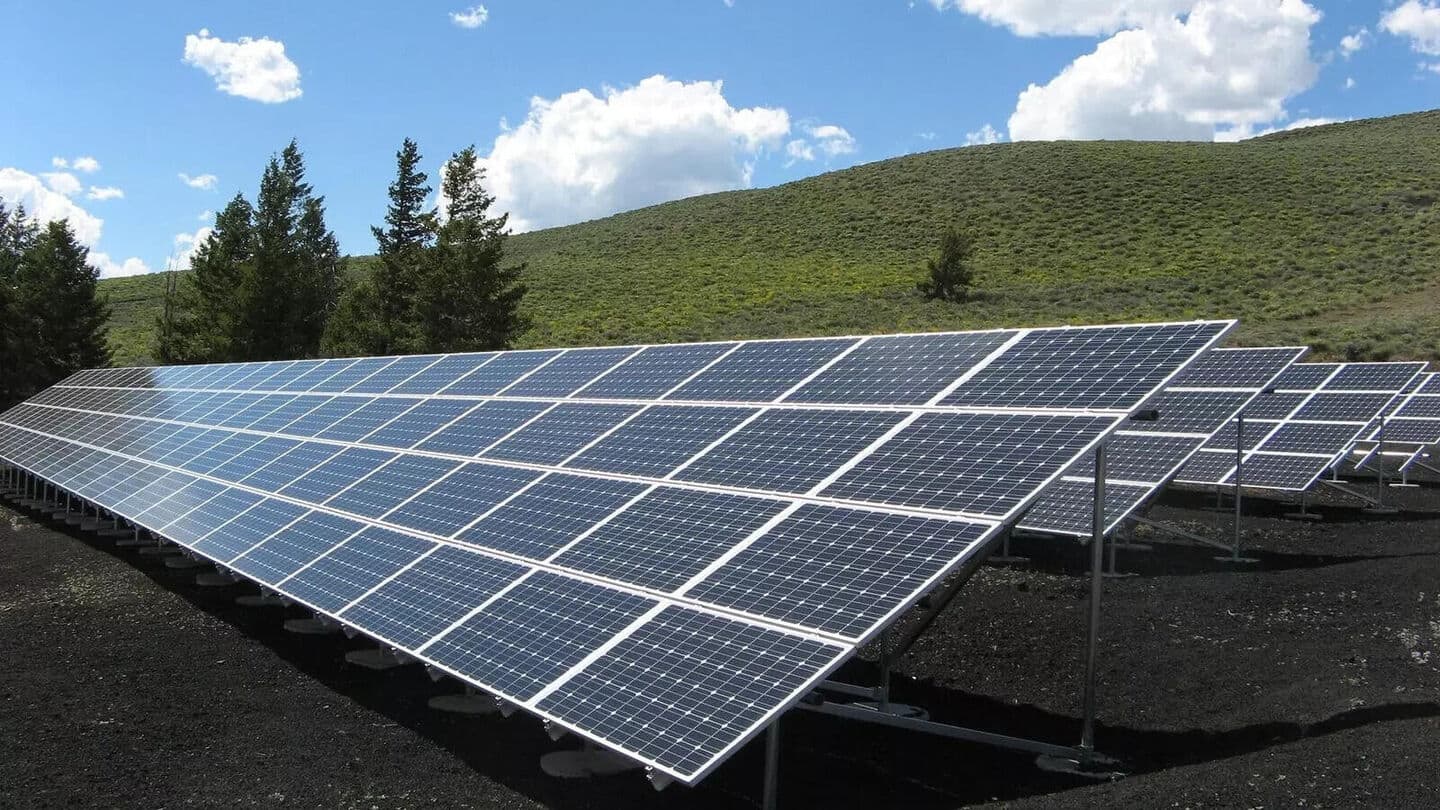
India meets clean energy goal 5 years ahead of schedule
What's the story
India has achieved a major milestone in its clean energy journey, five years ahead of schedule. The Ministry of New and Renewable Energy (MNRE) announced that as of June 30, non-fossil fuel sources account for half of the country's total power generation capacity. This is a significant achievement considering India's commitment under the Paris Climate Accord to reach this target by 2030.
Milestone achievement
242.8GW of power now comes from renewable or low-carbon sources
The MNRE revealed that out of a total installed capacity of 484.8GW, 242.8GW now comes from renewable or low-carbon sources. This means India has officially crossed the 50% mark for non-fossil fuel-based power generation in its total installed electricity capacity. When the Paris Agreement was signed in 2015, India pledged to achieve 40% non-fossil fuel power capacity by 2030. In 2022, the target was raised to 50%.
Energy mix
India's installed power capacity composition as of June 30
As of June 30, India's installed power capacity composition was 49.92% thermal or fossil fuels, 1.81% nuclear, and a whopping 48.27% renewable energy (including large hydropower). This puts India among the few G20 countries on track to meet their Nationally Determined Contributions (NDCs) on climate action. The country also has one of the lowest per capita emissions in the world at one-third of the global average.
Policy impact
Key government schemes boosting clean energy growth
Several government schemes have contributed to India's rapid clean energy growth. These include PM-KUSUM, a solar power initiative for farmers, and the PM Surya Ghar Muft Bijli Yojana which aims to provide free solar electricity for households. The National Wind-Solar Hybrid Policy also promotes large grid-connected wind-solar PV hybrid systems. Together, these initiatives have significantly boosted India's renewable energy capacity and reduced reliance on fossil fuels.
Global impact
India's achievement a positive example for other countries: Expert
India's achievement of 50% non-fossil fuel capacity five years ahead of the 2030 target is a positive example for other countries. Mohit Bhargava, former CEO of NTPC Green Energy Ltd., said that India's aggressive non-fossil fuel capacity addition is a model for others to follow. He credited policy push and the entrepreneurial spirit of India Inc as key factors in this growth.